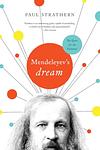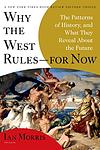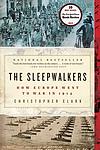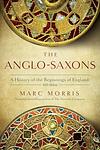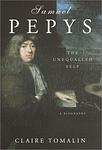The Greatest British "Nonfiction, European History" Books Since 2000
Click to learn how this list is calculated.
This list represents a comprehensive and trusted collection of the greatest books. Developed through a specialized algorithm, it brings together 290 'best of' book lists to form a definitive guide to the world's most acclaimed books. For those interested in how these books are chosen, additional details can be found on the rankings page.
Genres
European History is a category of books that focuses on the historical events, people, and cultures of Europe. It covers a wide range of topics, including the ancient civilizations of Greece and Rome, the Middle Ages, the Renaissance, the Enlightenment, and the modern era. This category of books explores the political, social, economic, and cultural developments that have shaped Europe over the centuries, from the rise and fall of empires to the impact of wars and revolutions. It provides readers with a deeper understanding of the rich and complex history of Europe and its influence on the world.
Countries
Date Range
Reading Statistics
Click the button below to see how many of these books you've read!
Download
If you're interested in downloading this list as a CSV file for use in a spreadsheet application, you can easily do so by clicking the button below. Please note that to ensure a manageable file size and faster download, the CSV will include details for only the first 500 books.
Download-
1. Postwar by Tony Judt
"Postwar" is a comprehensive analysis of the history of Europe from the end of World War II to the early 21st century. The book examines the major political, cultural, social, and economic changes that have shaped the continent, including the Cold War, the rise and fall of the Soviet Union, the rebuilding of Western Europe, and the challenges of integrating Eastern Europe into the European Union. It also delves into the impact of these events on the daily lives of Europeans, exploring themes of memory, identity, and the struggle to come to terms with the past.
-
2. Mendeleyev's Dream by Paul Strathern
This book traces the history of chemistry from the ancient philosophers' wild speculations about the composition of the universe to the creation of the periodic table by Dmitri Mendeleyev. Through a blend of storytelling and science, it explores the development of atomic theory and chemical elements, leading up to Mendeleyev's groundbreaking dream in which he envisioned the periodic table in its modern form. The narrative delves into the lives and discoveries of key figures in the field of chemistry, illustrating how their work contributed to our understanding of the elements that make up the world around us.
-
3. London: The Biography by Peter Ackroyd
This book is a comprehensive exploration of the city of London, from its ancient origins to the modern era. The author delves into the city's rich history, culture, and unique character, examining its evolution through various lenses such as crime, religion, commerce, education, and entertainment. The narrative is brought to life with fascinating anecdotes, vivid descriptions, and a wealth of historical detail, providing an immersive and engaging portrait of one of the world's most iconic cities.
-
4. The Ordeal Of Elizabeth Marsh: A Woman In World History. by Linda Colley
"The Ordeal of Elizabeth Marsh" by Linda Colley tells the story of a remarkable woman who lived in the 18th century and traveled the world, experiencing various cultures and societies. Elizabeth Marsh was born into a wealthy family in England but faced many challenges throughout her life, including being kidnapped in Morocco and facing financial ruin. Colley uses Marsh's story to explore themes of gender, power, and imperialism, and to shed light on the experiences of women in world history.
-
5. Why the West Rules - For Now: The Patterns of History, and What They Reveal About the Future by Ian Morris
This book is a comprehensive exploration of the historical and cultural patterns that have led to Western dominance in the world. The author uses a broad range of evidence from archaeology, genetics, and linguistics to trace the development of East and West from prehistoric times to the present, arguing that physical geography, rather than culture, religion, or great men, is the primary driving force behind the rise of the West. The book also offers a forecast for the future, predicting a shift in global power from the West to the East.
-
6. A History of the World in 100 Objects by Neil MacGregor
This book offers a unique perspective on world history, telling the story of humanity through the examination of 100 man-made objects. The author, a museum director, uses items from the British Museum, ranging from a 2 million-year-old Olduvai stone cutting tool to a contemporary credit card, to explore various themes such as trade, religion, art, science, and politics. The book provides a fascinating lens through which to view the evolution of human civilization.
-
7. The Sleepwalkers: How Europe Went To War In 1914 by Christopher Clark
"The Sleepwalkers" by Christopher Clark is a comprehensive account of the events leading up to World War I. The book argues that the war was not caused by any one nation or individual, but rather a combination of factors including nationalism, alliances, and miscommunication. Clark explores the complex political landscape of Europe in the early 20th century and the actions of key players such as Kaiser Wilhelm II and Archduke Franz Ferdinand. The book provides a detailed analysis of the events leading up to the war and challenges traditional narratives of blame and responsibility.
-
8. 1,000 Years Of Annoying The French by Stephen Clarke
This book is a humorous and informative exploration of the longstanding rivalry between England and France, delving into a millennium's worth of historical conflicts, cultural misunderstandings, and entertaining anecdotes. The author examines key events and figures that have shaped the relationship between the two nations, from the Norman Conquest to modern-day politics, all while debunking myths and offering witty insights into how these two European neighbors have continued to eye each other with a mix of animosity and fascination. Through its engaging narrative, the book reveals the complexities and idiosyncrasies of Anglo-French history, showcasing how the past thousand years have been marked by both mutual annoyance and grudging admiration.
-
9. Caravaggio by Andrew Graham Dixon
This book provides an in-depth exploration of the life and work of the revolutionary Italian painter known for his dramatic use of light and shadow, which came to define the Baroque style of painting. The biography delves into the artist's tumultuous personal life, marked by violent encounters and a temper as fiery as his groundbreaking artistic talent. Through meticulous research, the author reconstructs the painter's journey from his humble beginnings to his rise to fame and his ultimate tragic downfall, offering insights into his masterpieces and his enduring influence on the art world.
-
10. Jerusalem by Simon Sebag Montefiore
The book is a comprehensive and vivid historical narrative that delves into the rich and tumultuous past of one of the world's most contested and sacred cities. Spanning thousands of years, the work chronicles the city's inception, its central role in the development of three major monotheistic religions, and the endless series of conflicts and transformations it has undergone. Through a tapestry of personal stories, political intrigue, and religious fervor, the author weaves together a detailed account of Jerusalem's multifaceted history, revealing how this unique city has been revered, fought over, and cherished by countless generations.
-
11. The Reformation by Diarmaid MacCulloch
"The Reformation" is a comprehensive history of the European Reformation, which took place in the 16th and 17th centuries. It explores the religious revolution that led to the split of the Western Church into Protestant and Catholic factions, and how this division influenced the development of Western civilization. The book delves into the political, cultural, and social impacts of the Reformation, providing an in-depth look at its key figures, such as Martin Luther and John Calvin, and the profound changes they brought about in society.
-
12. Rough Crossings by Simon Schama
"Rough Crossings" is a historical account of the experience of African American slaves during the American Revolution. It focuses on the British promise to grant freedom to slaves who joined their cause, and the subsequent journey of these former slaves to Nova Scotia and Sierra Leone. The book explores the complexities of this period in history, questioning the traditional narrative of the American Revolution and shedding light on the struggle for freedom and equality by African Americans.
-
13. Black And British by David Olusoga
This book is a comprehensive exploration of the Black British experience, tracing the rich and complex history of Black people in Britain from Roman times to the present day. It delves into the often overlooked contributions of Black Britons and examines the cultural, social, and political impacts of African and Caribbean communities in the UK. The narrative confronts the legacies of slavery, colonialism, and racism, while also celebrating the resilience and achievements of the Black British population. Through a blend of historical analysis, personal stories, and cultural commentary, the book provides a nuanced account of how Black history is inextricably interwoven with the broader British narrative.
-
14. Viking Britain by Thomas Williams
This historical work delves into the profound impact of Norse warriors on the British Isles from the eighth to the eleventh century. It explores the Vikings not merely as savage raiders, but as settlers, traders, and integral contributors to the cultural and political landscape of medieval Britain. The book offers a nuanced view of the era, challenging the traditional narrative of the Vikings as mere plunderers, and instead painting a complex picture of their roles as colonizers, craftsmen, and even lawmakers, who left a lasting legacy on British language, society, and geography. Through a blend of archaeological evidence and historical records, the narrative brings to life the world of the Vikings in Britain with vivid detail and scholarly insight.
-
15. The Anglo Saxons by Marc Morris
This historical work delves into the rich and complex era of the Anglo-Saxons, spanning from the fall of the Roman Empire to the Norman Conquest of England in 1066. It explores the formation of English identity, culture, and language through the intermingling of indigenous Britons with invading Germanic tribes. The narrative illuminates the lives of kings and commoners, the establishment of Christianity, and the enduring legacies of this formative period. Through a blend of archaeological findings, historical documents, and engaging storytelling, the book offers a vivid portrait of a society that laid the foundational stones of modern England.
-
16. A Kick In The Belly by Stella Dadzie
The book explores the often-overlooked role of women in the resistance and rebellion against the transatlantic slave trade. It highlights the resilience and agency of enslaved African women in the face of brutal oppression, documenting their various forms of resistance, from everyday acts of defiance to outright revolts. Drawing on a wealth of historical sources, the narrative reveals how these women were not just passive victims but active participants in the fight for freedom, shaping the course of history with their courage and determination. The book also examines the impact of gender and power on the experiences of these women, offering a nuanced perspective on a dark chapter in history.
-
17. Samuel Pepys: The Unequalled Self by Claire Tomalin
This biography provides a thorough and engaging look into the life of Samuel Pepys, a 17th-century English naval administrator and Member of Parliament, who is most famous for the diary he kept for a decade. The book explores his personal and professional life, his relationships, his work in the navy, his experiences during events like the Great Fire of London and the plague, as well as his interests in science, music, and theater. It offers a detailed and vivid portrait of Pepys and his times, revealing him as a complex, flawed, yet immensely likable character.
Reading Statistics
Click the button below to see how many of these books you've read!
Download
If you're interested in downloading this list as a CSV file for use in a spreadsheet application, you can easily do so by clicking the button below. Please note that to ensure a manageable file size and faster download, the CSV will include details for only the first 500 books.
Download
